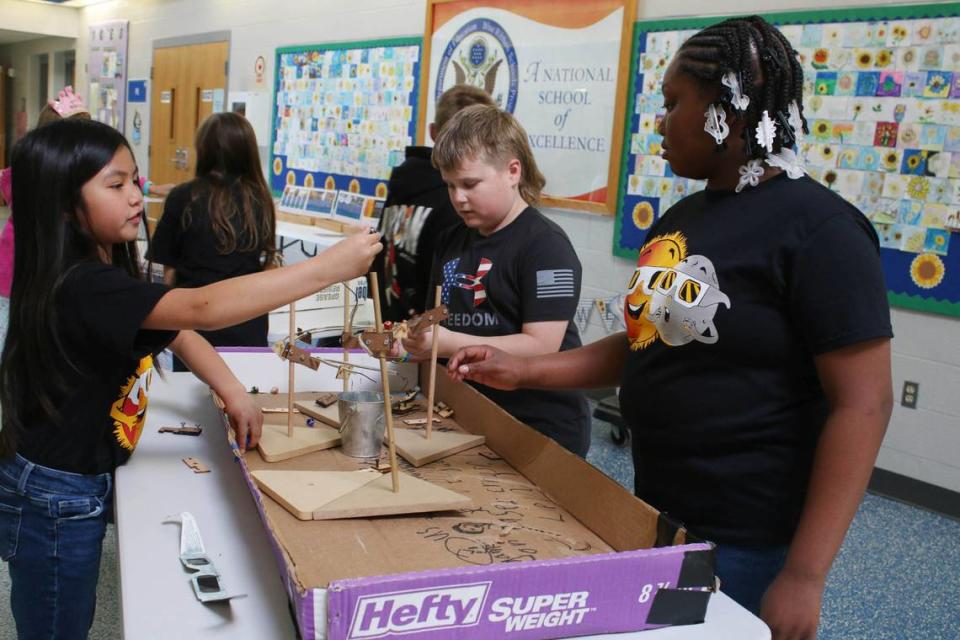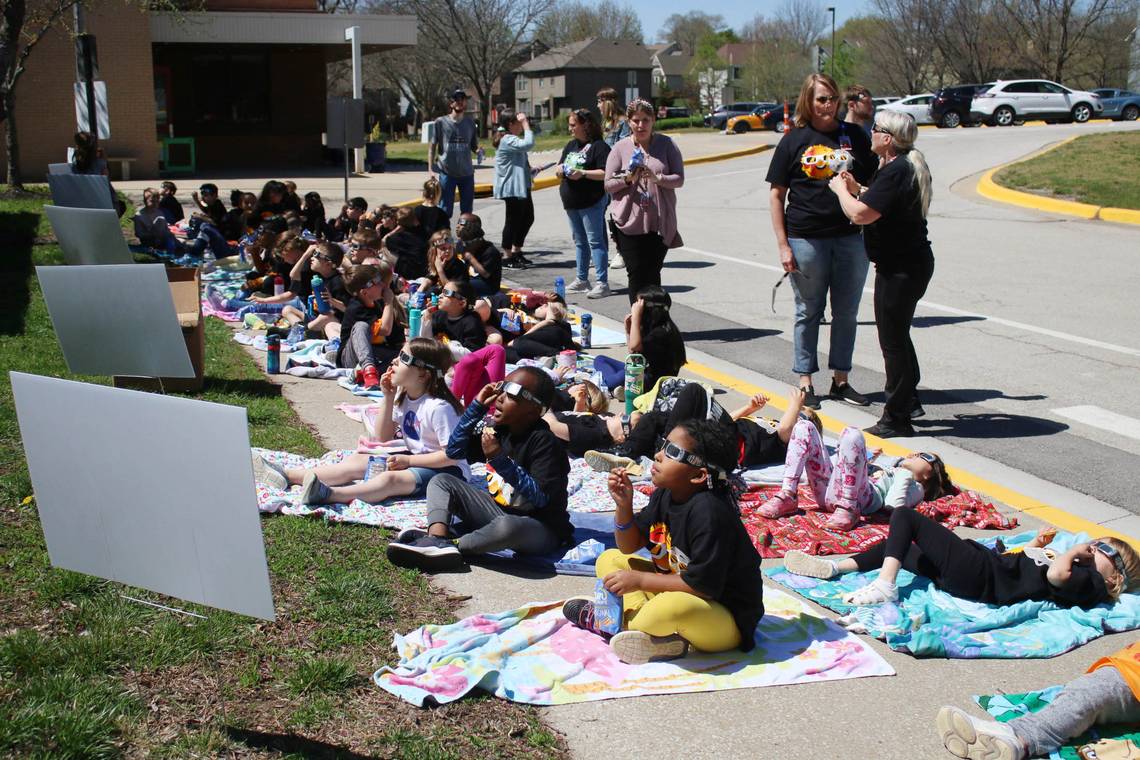Students at Heatherstone Elementary School in Olathe found the sunny side of the eclipse this week. The school arranged a variety of activities to celebrate the phenomenon Monday.
When she realized the eclipse was coming up, first-grade teacher Nancy Smith went to the PTO with a plan. Themed T-shirts for the school’s students were purchased, along with bags of Sun Chips for the kids to snack on during the event.
“These kinds of events really pull our school together,” Smith said.
Her next move was to get Rich Maxwell from the Moon Marble Company in Bonner Springs to come to the school to discuss eclipse marbles. Each student took home one of these dark blue marbles with a color swirl in the middle.
In 15-minute shifts, different classes got a quick lesson on the marbles, then got a chance to play with roller coaster-like tracks that Maxwell built or try a game of ringer.
During the eclipse itself, the whole school emptied out onto the front lawn and sidewalks, and the kids spread out beach towels to lounge on and watch it unfold.
Student Alex Reichuber, 11, called it the “best day of school ever.”
For safety, the Olathe School District bought enough pairs of eclipse glasses for each student and staff member to have one. Because they’re designed for adults, the glasses don’t always fit so well on smaller children.
At Heatherstone, teachers got around that problem. The younger kids colored paper plate masks with a few cut-outs, then slotted the glasses into the plates so that even if the glasses shifted a little, the kids wouldn’t get sun directly in their eyes.
On an academic level, each teacher handled the eclipse differently in the days leading up to the event. Smith said one teacher dressed up like Galileo and talked about the observations he made with telescopes.
A group of first-graders put on a play for the kindergarten classes about why it’s important to keep your eclipse glasses on and wrapped it up by singing and signing “You Are My Sunshine.”
Fifth-grade teacher Alyssa Kimmel often uses the Flocabulary app to teach concepts using songs and raps. She found an eclipse song that helped introduce the topic to her students.
“Some students knew a lot, including what time and how long it was going to last, and some students had no idea. We had to get the same baseline of understanding,” she said.

Kimmel said she likes using a hot topic to get students to read and analyze non-fiction text.
“What we’re trying to do is take content that’s relevant and on their minds right now — they’re living it — and sneak in those fifth-grade reading standards,” she said. “I wish every science lesson had some kind of big event, because I’d have them all enthralled.”
Learning about the eclipse was no problem for 10-year-old Owen Byrd.
He got a book from the library to gather information that he used to make a presentation to his class on the five stages of an eclipse.
“I’m really taking this pretty seriously, because I heard the next one won’t be for 20 years,” he said.
